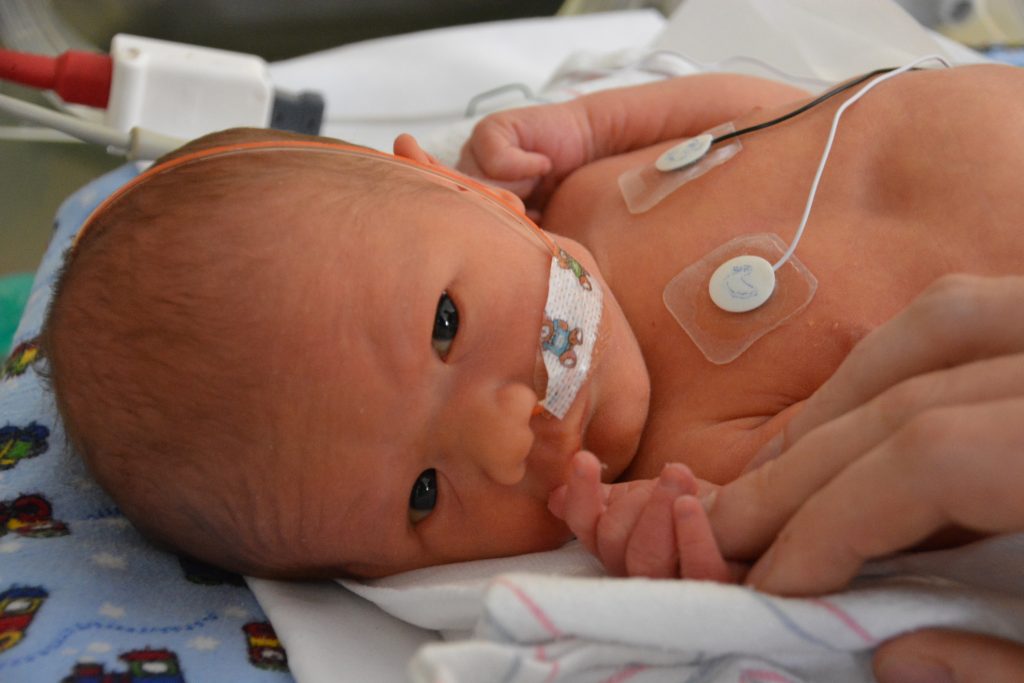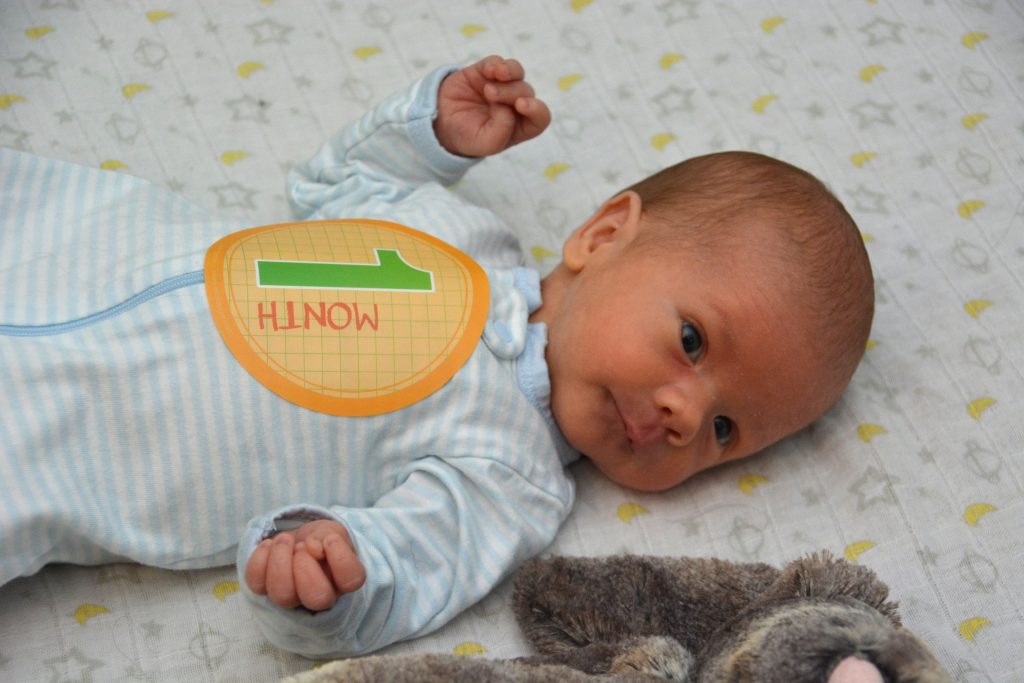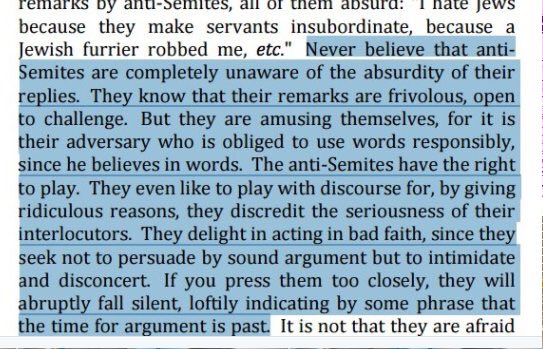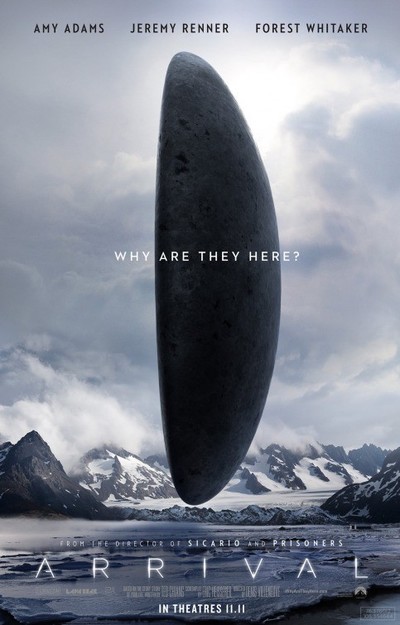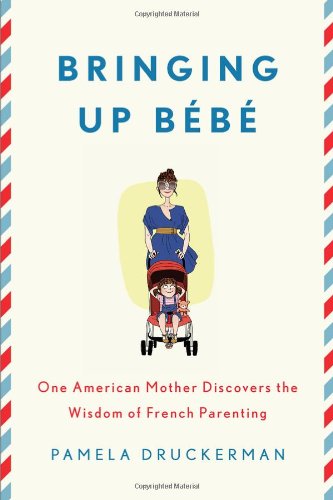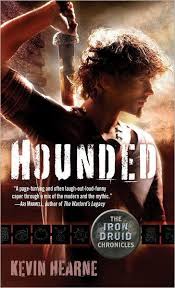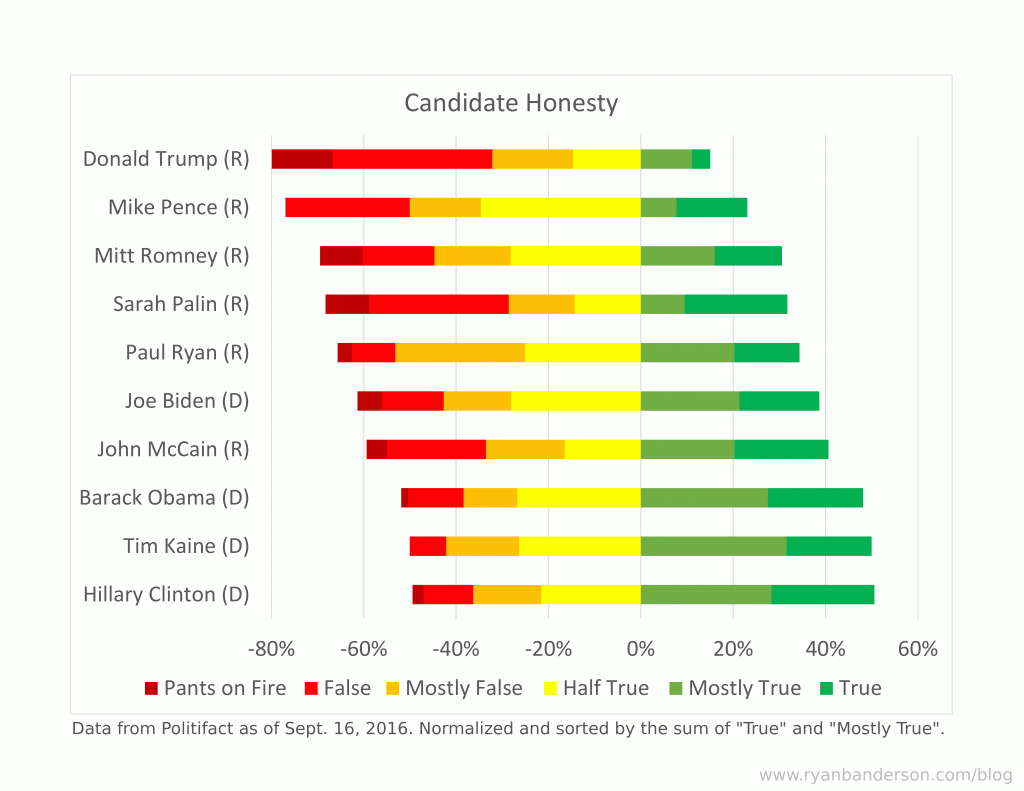Look again at that dot. That’s here. That’s home. That’s us. On it everyone you love, everyone you know, everyone you ever heard of, every human being who ever was, lived out their lives. The aggregate of our joy and suffering, thousands of confident religions, ideologies, and economic doctrines, every hunter and forager, every hero and coward, every creator and destroyer of civilization, every king and peasant, every young couple in love, every mother and father, hopeful child, inventor and explorer, every teacher of morals, every corrupt politician, every “superstar,” every “supreme leader,” every saint and sinner in the history of our species lived there–on a mote of dust suspended in a sunbeam.
The Earth is a very small stage in a vast cosmic arena. Think of the rivers of blood spilled by all those generals and emperors so that, in glory and triumph, they could become the momentary masters of a fraction of a dot. Think of the endless cruelties visited by the inhabitants of one corner of this pixel on the scarcely distinguishable inhabitants of some other corner, how frequent their misunderstandings, how eager they are to kill one another, how fervent their hatreds.
Our posturings, our imagined self-importance, the delusion that we have some privileged position in the Universe, are challenged by this point of pale light. Our planet is a lonely speck in the great enveloping cosmic dark. In our obscurity, in all this vastness, there is no hint that help will come from elsewhere to save us from ourselves.
The Earth is the only world known so far to harbor life. There is nowhere else, at least in the near future, to which our species could migrate. Visit, yes. Settle, not yet. Like it or not, for the moment the Earth is where we make our stand.
It has been said that astronomy is a humbling and character-building experience. There is perhaps no better demonstration of the folly of human conceits than this distant image of our tiny world. To me, it underscores our responsibility to deal more kindly with one another, and to preserve and cherish the pale blue dot, the only home we’ve ever known.
– Carl Sagan, Pale Blue Dot, 1994
Page 6 of 16
We’re back at the hospital again. Yesterday we came in because Erin was having some contractions that felt different from the normal Braxton-Hicks that are expected at 35 weeks. They sent us home, telling her to relax and that these might go away or they might persist for another month. We were instructed to come back if they got “longer, stronger, closer together.” Sure enough, they intensified overnight, keeping both of us awake and miserable. So we’re back at the hospital again, first thing in the morning. We are fully expecting to be turned away again. I didn’t bother to pack a change of clothes or food in our hospital bag because this is surely another false alarm.
Our nurse today is younger and nicer than the one we had yesterday. She checks and Erin is 3 cm dilated. We are informed that the baby is coming today.
We try to digest this information as Erin is whisked to a delivery room. This was not the plan. It’s 5 weeks too early. We are told that most babies born at 35 weeks do fine. I was born at about 35 weeks and I was fine. But we’re still terrified. What if this is happening because something is wrong? What if he can’t breathe because he’s too early? At the same time, it’s thrilling. We’ve been waiting and preparing for this and now it’s finally happening! We get to meet our son. Today!
It’s early afternoon and the delivery room is in chaos. Erin is standing beside the bed, holding both my hands, doubled over with the pain of a contraction. The nurses are frantically changing the mattress on her bed, because somehow it had the wrong type of mattress and she’s about to get an epidural so they need to change it before she can’t stand. The anesthesiologist has wheeled his cart into the delivery room and is complaining about how they’ve moved everything compared to how it used to be in the old rooms.
The mattress is finally changed, Erin is instructed to sit just so, and then during another contraction the doctor inserts the epidural and starts the drip of pain killer. Half an hour later things have changed dramatically. The pain has faded, the anesthesiologist has left, and the nurses leave too. For the next few hours, Erin rests.
Evening, and the room is crowded again because the baby is about to make his appearance. The doctor is all suited up, a team of nurses from the special care nursery is standing by along with the regular nurses to check out our preemie.
One more push and the baby is out, he is lifted up and placed on Erin’s chest, and we are both massively relieved when he starts to cry. It’s not super strong or loud, but it’s a cry. The next little while is a blur of activity and emotion. At some point the doctor asks if I am ready to cut the cord. I am handed some surgical scissors and shown where to cut. I had been told the cord would be tougher than you think, so it is instead softer than I expected.
The doctor asks if we want to see the placenta. We say no, but she doesn’t hear us and shows us anyway. It’s a big bloody bag made of surprisingly large veins. They take it off to the lab to be tested (standard for preemies) and ask if we want it back. No, thank you, we do not.
They weigh the baby (our son!) and he is a respectable 5 lbs 11oz. Not bad! He is breathing, he’s a healthy weight, his temperature is good. We’re feeling relieved. He’s going to be ok. The final hurdle is getting him to eat. Erin tries for a while but he is too exhausted and doesn’t nurse. The nurses prick his heel and check his blood sugar. It’s too low for them to get a good reading. We’re going to NICU.
We are in NICU and my son (!) is sucking on my gloved finger. The nurses told me to dip it in sugar water and let him suck it as a distraction/pain relief while they try to put an IV in his tiny veins. They are having trouble. They have tried both hands with no luck. They’re back to the first hand, using a bright light to shine through his hand and find the vein. They finally give up and tell me that he will need to get an IV in the umbilical vein. Erin comes down at some point in a wheelchair to see the baby, but there’s not much room and they need room to work. She heads upstairs to rest.
The doctor comes over. I have to stand back because this is a sterile procedure. The doctor seems very disorganized, not knowing where things are, and the kit of supplies he is using is missing things. Assorted items are cast aside on the ground. He complains about how short the umbilical stump is and admonishes our ObGyn for leaving it so short. (I feel an irrational pang of guilt, since I cut the cord) But in the end the catheter is inserted, and baby gets the sugar he needs. After the procedure, the nurse apologizes for the doctor: he is very experienced but new to Flagstaff and still learning how things are done here. It’s been a few hours since the birth. It’s after midnight and I’m exhausted and there’s nothing more to do. I now have to leave my baby in a plastic box, connected to wires that read his pulse, his breathing, and his blood oxygen levels, along with the IV that is feeding him. I go upstairs and try to rest.
It’s been a couple of days, and after all of that, we are home and our baby is still at the hospital. This feels wrong on a visceral level. The dogs are happy to see us home, the house is just the same as it has always been, but it suddenly feels very lonely.
We are grateful for the flood of love and support that we’re getting on Facebook because we don’t have any local family and our baby is in the NICU instead of home in our arms.
We decide on the name Shane. Middle name is mom’s last name, last name matches mine. It feels good to finally settle on something after months of thinking about it, but it’s also very strange. Naming a human being is hard!
Christmas eve day, and we’re just about to leave the NICU to go home for lunch. Our jackets are already on when Shane wakes up and opens his eyes. Other than right after the birth, he’s had his eyes closed most of the time. We get our first chance to really look him in the eye. He’s beautiful, and it is heartbreaking to leave him.
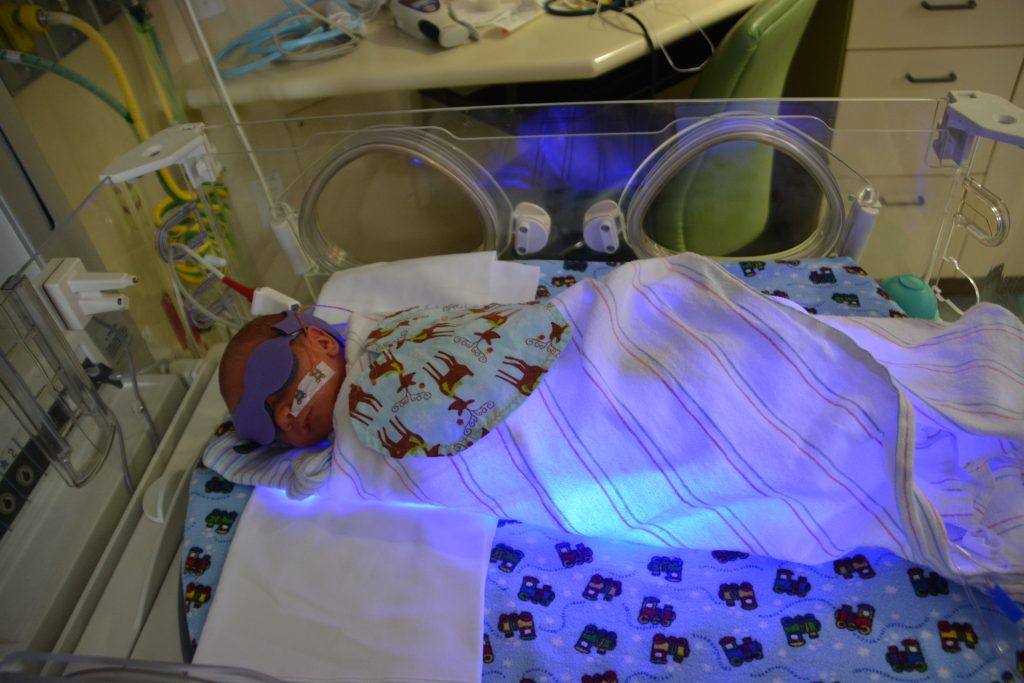
It’s Christmas eve. Shane has been put on a “bili blanket” to treat newborn jaundice, a common problem. The glowing blue blanket makes it look like he is acquiring superpowers. A winter storm is blowing in, promising everyone in Flagstaff a white Christmas, and making it extra inconvenient for us to come in to see our baby. But we do of course. We complain about the storm but it’s also sort of nice to have a concrete way to demonstrate our love. We will not be prevented from visiting our baby by a little snow!
We have been moved to a roomier cubicle, right by the window, and so we spend Christmas eve in the dark, warm NICU with a view of colorful Christmas lights on the trees and snow coming down hard. Inside, we have the dim light of the ever-present monitors, showing us our baby’s vital stats. We sit there as a family and I read aloud from The Slow Regard of Silent Things and even though we’d rather be at home, everything seems right with the world.
The days begin to blur into one another. His IV gets swapped out for a feeding tube in his nose, which means he’s also allowed to wear clothes now, which is seriously adorable. His jaundice clears up and the light blanket is removed. He gets moved to a smaller crib, and back to our original, more cramped cubicle. Our lives are now scheduled around the feeding times and meeting times set by the hospital. Every day, we get in before 8 so that baby can eat at 8 and one of us can get an update from the NICU team. The euphoria of the first few days starts to wear off. We thought he would only be in the hospital for a few days but here we are, still at the hospital. I start to worry about health insurance, especially since it looks like his hospital stay will cross over into the new year, making us pay twice.
Shane’s oxygen levels also start to fluctuate. When he goes into a deep sleep they drift down, flirting with the 85% level which sets off the oxygen alarms. Sitting with our baby switches from being relaxing to nerve-wracking. Instead of looking at his peaceful face, my eyes are glued to that oxygen number, willing it to stay up.
One morning we are told that he may need to go on oxygen, which is a huge emotional blow. The number one thing I was worried about with a preemie was that he would have breathing trouble, and I thought we were past that once he was born and cried and breathed well immediately. That same morning, he does his best breast feeding yet, 19 minutes, but the nurse assumes he isn’t going to get a full feeding and pumps him full of a full meal with his feeding tube as well. She also refuses to weigh him before and after the breastfeeding to see how much milk he got. We are annoyed and distraught.
At rounds, we get a little more information about oxygen. Apparently babies sometimes need oxygen once they start having to digest larger meals because the digestive system uses more oxygen than they needed before, This makes absolutely no sense to me: why would the body prioritize digestion over proper blood oxygen levels? If having a full stomach causes his oxygen to dip, why the heck did the nurse just force feed him a second meal on top of the one he was already eating? But the nurses assure us that oxygen isn’t a big deal, that it’s very common at our elevation, and that if necessary he can come home on oxygen. Despite that, we’re quite upset. He’s supposed to be getting better. Requiring oxygen is not a sign of getting better.
It’s a few days later and we’re getting used to the oxygen. I am giving him a bottle, tilting it to give him a break every few sucks as we’ve been instructed, when he chokes. After a weak cough, he stops breathing. His oxygen levels drop and the alarm starts going off. Unlike other times that this has happened, his levels stay low. I am holding him in my arms and watching him turn blue and there is nothing I can do. Erin rushes to get a nurse, who turns up his oxygen and sits him up. He finally takes a breath and recovers. We give him the rest of his feeding through the tube and then head home for lunch.
I manage to keep it together until we are home, and then break down. I’ve never felt more scared and helpless than I did watching him go limp and change colors. I still desperately want him to come home, but now I’m also terrified. What if that had happened at home with no nurses nearby and no oxygen? Maybe I don’t want him to come home after all. I stay at home that afternoon and try to emotionally recover.
The next few days are up and down. Sometimes he does really well, other times he falls asleep after hardly eating anything. It’s a very confusing mix of emotions to feel all the love of having a new baby but also being angry at him for refusing to eat day after day (even though we know it’s not his fault). Sometimes the frustration is so strong I can barely handle sitting there and watching him ignore the milk he is being offered. Nurses try to make it better by joking “Get used to it, this is just a sample of how frustrating being a parent is.” But I hate it when they say that. This isn’t a behavior issue with an older kid. I actually feel pretty confident in my ability to handle things like that. This is a baby failing to fulfill biological necessities. This is brainstem-level behavior and he isn’t doing it and it is driving me crazy. I start to get paranoid that there is something developmentally wrong with him (and I am eternally grateful for the nurses and other support people who recognize this concern and repeatedly reassure me).
We are sitting, talking to the NICU social worker, whose job seems to be to ensure that the parents are ok and that when baby goes home the family will have a safe and supportive environment. Just as I am telling her about how my main complaint about the otherwise wonderful NICU care is that sometimes we are told something that, without context, seems pretty alarming (for example, the oxygen thing), a nurse comes over and listens to Shane’s heart and says that she hears a murmur. We get to panic about that for a little while until it is explained that they check for heart murmurs by default whenever a baby has to go on oxygen, and that it sounds minor but needs to be followed up with an ultrasound.
The next day, a giant futuristic-looking ultrasound machine appears, and we watch as they look at his heart and take lots of snapshots and recordings. Of course the tech can’t tell us anything, so it’s another day before we know the results: Shane has an ASD (atrial septal defect) and a PDA (patent ductus arteriosus). PDAs are present in all babies in-utero and tend to close on their own in most cases. ASDs are less common, but we are told his is small and also likely to close on its own. We are told they tend to get loudest right before they close which may be why it wasn’t detected before. If it doesn’t close on its own, it should be treatable without surgery.
I swing between being pretty upset about it and being philosophical about it: these defects were only detected because he was in the NICU and on oxygen. There’s a good chance that he could have grown up with them and nobody would have known. Many people don’t learn they have an ASD until they are middle aged and have a mini-stroke. It’s better to catch these things early so they can be monitored and treated.
But still, the last thing you want to hear is that your baby has a problem with his heart. One more apparent setback. One more complicated emotion to add to the mix.
Suddenly he’s doing better. He is weaned off of oxygen overnight on the 7th, and he eats reliably for two days in a row, is actually acting hungry when he wakes up, and suddenly the nurses are talking about going home! To go home he has to pass the “carseat challenge” which involves sitting in his car seat for at least 90 minutes with no oxygen issues. He passes with no problems. We are told to go home and get some things, we will “room in” with him tonight and if all goes well, he can go home tomorrow.
The “rooming in” room is like a hospital version of a hotel room. Big, decent bed, private bathroom, but just down the hall from the NICU in case anything bad happens. We wheel him back in his crib and for the first time we have an (almost) cordless baby. The leads for the ECG and breathing monitors are still attached, but they just get tucked into his clothes. We can pick him up without having to worry about unplugging something from the wall! We have privacy and space to move around with our baby for the first time! One of the things that we notice most is how quiet it is. Three weeks in the special care nursery and we had stopped noticing the constant background hum of monitors and babies fussing and nurses and parents talking.
We settle in for our first night with our baby (still punctuated by nurses coming by to check him). We don’t sleep much, but it’s great because it means we’re done with the NICU.
And then we are home! After waiting so long it hardly seems real, but there’s our little boy in his own bassinet in our own bedroom. No wires attached, no oxygen tubes or feeding tubes. No monitors giving us a heart attack every few minutes. Just our baby. In our house!
We introduce him to the dogs. Renly is quietly excited, wagging and licking his face a few times. Pippin is oblivious, and responds the way he always does when we’re paying attention to him: by rolling over and showing us his tummy.
The first night is rough. When he is stirring and making noises, we worry that they’re noises of distress. When he is silent, we worry that he has stopped breathing. We don’t get much sleep. We realize we need some dim lights in the nursery. We realize we need a laundry hamper handy near the changing table.
It is amazing how relaxed life seems now that we don’t need to rush back and forth to the hospital multiple times a day.
Over the next couple weeks, we take Shane to his first pediatrician appointments, we get newborn pictures taken, we give him his first bath at home and his first infant massage. He gets to meet some friends, and my parents get to see him at home instead of at the hospital, trailing wires.
It’s the middle of the night. Nobody is sleeping. Why didn’t anyone tell us about the noises? Crying would be one thing, because then it’s clear that something is wrong, and you get up and fix it, but he hardly ever cries. Instead he spends most of the night squirming, kicking, straining, grunting, gurgling. All while apparently remaining asleep. He sounds like a little tauntaun and it’s driving us crazy. Is it gas pain? Does he think that straining and grunting will help with hunger? If so, how do we teach him that, no, they don’t?
We look online and this seems to be the norm for newborns. Nobody has a good solution for it. I don’t know who the heck coined the phrase “sleeping like a baby” but it’s awfully misleading. I had assumed the sleep deprivation that people talk about was related to crying, not this weird grunting.
We understand now why all the warnings about SIDS are drilled into parents so forcefully, because it is awfully tempting to bring him into bed with us and let him sleep on our chests (the only position where he really seems to sleep quietly) while we sleep.
And now, as I write this, I have reluctantly started to ease myself back into work. I am extremely lucky that I’ve been able to take so much time off, but for some reason the world has not put itself on hold while I’ve been away and I need to get back. I find that my perspective has shifted. It’s awfully hard to care about esoteric questions about Mars when current events are so awful and I have a baby at home to take care of. Can’t I just be a stay-at-home Dad and snark about politics online for a living? No? And even though I’ve been off for a while, it feels like three weeks of my leave were stolen from me: I expected to spend all of my leave at home with my baby, not shuttling back and forth to the hospital, sitting in an uncomfortable chair in a cramped cubicle, unable to enjoy my time with my baby because he won’t eat and his oxygen keeps dipping too low and because I’m stressing about what health insurance plan to choose to cover the likely $100,000 hospital bill headed my way.
I guess the lesson in all of this is that life doesn’t go as planned, and to be flexible and grateful for what you have. Because at the end of all of this, the only thing that matters is that my family is home and happy. We know that despite everything, we’ve been very lucky. Lucky that he is healthy, lucky that we could take time off of work, lucky that we live close to the hospital, lucky that we have health insurance, lucky that we live in a time when Shane could get the treatment he needed. We are incredibly grateful for the many excellent nurses who took care of him (and us).
Now we get to enjoy our new life with him, watching him grow and change every day, and figure out this next chapter in our lives.
Like much of the country, I have been reflecting on the election in the weeks since Donald Trump’s shocking win. I am of course horrified by Trump and what his administration will mean in terms of policy, but I want to talk about something even deeper than policy that has been bothering me: the lesson that this election will teach the GOP.
The GOP has been steadily distancing itself from reality for years now, but Trump’s campaign took the trend and followed it to its absurd conclusion. According to PolitiFact, only 15% of his statements that they have rated are True or Mostly True . The Earth is warming and humans are responsible, but the GOP doesn’t want to hear it. The influx of illegal immigrants is at a 40-year low and Obama has deported more people than any previous president, but to hear the GOP tell it, we’re facing a human tidal wave of illegal immigration that is threatening our way of life. The vetting process required for refugees is incredibly thorough, but Trump says that Syrian refugees are pouring in and that they represent a Trojan Horse that will lead to terrorist attacks. The unemployment rate has been steadily falling since around 2009 to its present level of ~5%, but according to Trump it is higher than 40%. Our tax rates are relatively modest, and tax rates are currently drastically lower than they were back in the 50s (back when America was, presumably, “great”), but according to Trump we are the highest taxed nation in the world. President Obama is an American-born Christian, but Trump led the charge that he is secretly an African-born Muslim. You get the idea. The man is almost incapable of telling the truth. He lies so effortlessly and fluently that trying to pin down each lie and expose it is simply not possible, and has tied the media in knots.
Meanwhile, upon Obama’s election, the Republican party made its goals very clear: to stop Obama’s agenda dead in its tracks. Never mind that Obama’s proposals have generally been quite moderate. Never mind if some of those agenda items, like Obamacare, borrow many ideas from previous Republican proposals. Never mind if the nation’s credit rating is downgraded and the government is shut down for weeks because congress refuses to fund the government or pay the bills. The most egregious and recent violation of basic good-faith governing has been the refusal to even hold a confirmation hearing for Obama’s Supreme Court nominee Merrick Garland, leaving a vacancy on the court for an unprecedented period of time.
Like many liberals, I assumed that Trump’s blatant race baiting and disregard for reality would eventually come back to bite him. Likewise, I hoped that the GOP’s fanatical obstructionism would eventually cause voters to say “enough is enough” and shift the balance of power. In my most optimistic moments, I hoped that this election would serve to sort of “break the fever” of the increasingly unhinged GOP, teaching the party that it needs to return to the real world and work together with Democrats to actually compromise and pass legislation. I hoped the election would teach the GOP a lesson and set our country back on track to a situation with two moderate parties which agree on a common reality even if they disagree on the best course of action.
Instead, the lesson learned from this election is that there is no need to play coy and attempt to disguise the racism and disregard for the truth that has become the signature of the Republican party. You can lie all you want. You can be openly racist and sexist and xenophobic, to the point where the KKK and actual Nazis are celebrating your candidate, and you will still win elections.
The other day, I saw the following image making the rounds on Twitter. It is a quote by Jean-Paul Sartre about anti-Semites, but it resonates strongly with the current political situation in our country:
This is what fundamentally troubles me about this election, even more than the giant leap backward that we are likely to witness on policies across the board. The Republican party has been learning this lesson for a while now, but Trump’s victory clearly illustrated that the party can make outrageous, racist, blatantly false statements and our media is so fragmented and divided that many loyal Republicans will take these statements to be true and vote accordingly. Meanwhile, those of us on the left are, in Sartre’s words, “obliged to use words responsibly”. We can froth with outrage and fact check until we’re blue in the face, but those fact checks fit neatly into the narrative of a biased “liberal media”, and the outrage serves only to exhaust us and keep us bouncing back and forth from one issue to another.
Meanwhile in Congress, the Republican obstructionist gamble has paid off in spades. The GOP was able to stop almost all of Obama’s reasonable policies, forcing him to rely on executive orders (something which itself sets a dangerous precedent). The GOP can get away with this tactic because it is far simpler to unite in blanket opposition than it is to unite behind actual legislation that is rooted in a complex and contentious reality. The GOP delights in obstructing progress because a gridlocked and useless congress plays directly into their narrative that government is ineffective. It becomes a self-fulfilling prophesy. Democrats on the other hand will (I hope) never be willing to act in such bad faith because their goal is for the government to do things to help people, and therefore they cannot pull stunts like shutting the government down or blocking Supreme Court nominees indefinitely.
I worry what the result of this may be. If the Republican party continues this strategy (and why wouldn’t they, given its success?) we will end up with a situation where during Democratic administrations the Republican party essentially shuts down congress, while during periods of Republican control we get a flurry of conservative legislation passed (and liberal policies abolished), gradually ratcheting our country toward the right. The only way I see to stop this is for Democrats to manage to take control of the executive and legislative branches, something made very difficult by poor performance in down-ballot races, along with gerrymandering that favors Republicans.
And the worst part about this is that I don’t know what to do about it. When your opponent refuses to act in good faith, and indeed refuses to even acknowledge reality, but somehow manages to convince large portions of the country to believe in his lies, how do you stop that? How do you ensure that truth wins out when facts themselves are seen as inherently suspicious? How do you defeat this strategy without adopting it yourself? I really don’t know, and it is making me despair.
I like home improvement projects and work trips that I can drive to because they both provide me with multiple hours during which I can listen to audiobooks. In the last couple of weeks I have been working on re-tiling a bathroom, and I had a trip out to Los Alamos, and the audiobook I chose to accompany all of that was Sapiens: A Brief History of Humankind by Yuval Noah Harari.
This book falls into the same genre of nonfiction as 1491 and 1493, two of my favorite recent nonfiction reads. Basically, the “big picture history” genre, where the focus is not a single person or war or event, but rather a wide-ranging look at the disparate factors that shape the course of history.
Sapiens is about as “big picture” as you can get, starting off with the evolution of homo sapiens and the long period of time during which we shared the planet (perhaps not peacefully) with other humans such as neanderthals, progressing through the development of culture, agriculture, religion, to the development of empires, science, colonialism, and capitalism, before finally concluding with a speculative look toward the future of our species as science allows us to edit or augment our own genomes or create artificial intelligence.
It’s a fascinating book that touches on many different topics, but it has one core theme, which is the idea that the main thing that gave homo sapiens an advantage over other early humans, and what underlies most of human achievement, is our ability to talk about and collectively believe in things that do not actually exist. Harari argues that this ability led to humans who could work together in large groups, and that is the key to our success. Examples of these things that exist only because we collectively agree that they exist are nations, gods, money, corporations, and human rights, and each of these (and many others) are discussed in considerable detail.
As you might be able to tell based on that list of imaginary things, this is a book that seems to strive to make everyone feel a little uncomfortable at some point. For me, I can nod smugly as he talks about why religion is an imaginary (but nonetheless powerful) human construct, but when he starts talking about how human rights also don’t really exist, or how scientific progress has been inextricably tied to brutal colonialism and heartless capitalism, things become less comfortable.
At times, the book can get somewhat speculative and tends to make grand, weakly-supported assertions and reductive statements that set off some mental warnings for me (and, apparently, for Charles Mann, the author of 1491 and 1493). But despite that, there’s no denying that it is thoroughly thought-provoking, and on the whole I found it to be a fascinating read that presents an interesting way of looking at the history of our species. Also, simply by touching on so many disparate topics (human evolution, politics, science, history, philosophy, religion, economics, etc.), it also serves as an introduction to any of those topics and situates them within the bigger picture of human history, which in my opinion definitely makes it a worthwhile read.
They did it.
I was excited but skeptical when I heard that the brilliant short story “Story of Your Life” by Ted Chiang was going to be made into a movie, called “Arrival”. Excited because “Story of Your Life” is among the best science fiction short stories that I have ever read, skeptical because it’s an unusual story and I wasn’t sure how a movie would be able to capture its brilliance. But they did it.
Fundamentally, Arrival/Story of Your Life is a first contact story (in fact, many parts of the movie reminded me of Contact). Mysterious alien ships appear one day all over the world, and linguist Dr. Louise Banks is brought in by the American military to learn the aliens’ language and allow them to communicate. She discovers that they actually have two forms of language, a spoken form, which humans could never hope to speak because the sounds are impossible for us to make, and a written form, different from any written language on Earth in that it has no correspondence to spoken language and has a very unusual structure. As she learns the language it begins to change how she thinks. At the same time, it’s a drama about Louise’s relationship with her daughter, and it bounces back and forth between vignettes of her daughter and scenes where Dr. Banks is figuring out the alien language.
It’s a hard story to describe without giving away what makes it special, so you’re going to have to trust me on this, but you need to experience it. If you can, set aside an hour or so, get your hands on the story, and read it. Once you’ve read it, or if you don’t think you’ll get around to reading it, then go see the movie. The movie is almost as good as the story. There’s a little bit of added geopolitical drama that I don’t remember being as prominent in the story, but that’s ok. The core idea is still there and it’s done well. This is the type of intelligent science fiction that makes my whole brain light up, and is a reminder that great sci-fi is about ideas, not flashy space battles. Do yourself a favor, take a break from current events, and check out this excellent story.

Image from here
- Quitting the news and social media. Like most of the rest of the country, I spent this election watching in horrified fascination as the media relentlessly covered Donald Trump, providing free publicity for his campaign of lies, hate, fear and divisiveness. The media, like many of us, thought that exposing Trump for what he is would surely stop him. But instead, that non-stop media coverage is responsible in large part for his victory, because a significant portion of our country saw his behavior and instead of being appalled, saw a man giving voice to their own thoughts and fears (facts and decency be damned). Staying up to date with the latest news brings me little joy in the best of times, but now with the election still so fresh, I cannot look at the news without feeling physically ill. So I’m not. I was already considering quitting social media after the election because it was so addictive and was sucking up precious time, but now it’s not just a matter of saving time. It’s an act of self-defense and an act of protest. I’m going to try to use time I normally would have spent on social media on reading, writing, and family instead. I won’t be fully stopping social media – it’s still a useful tool – but I will be restricting my social media usage to posting things that I created and responding to notifications, direct messages, and the like. Yes, I’ll miss out on the cute animal memes and babies and jokes and other things that make social media enjoyable, but I think this is a necessary step for now.
- Donating. This is the easiest way I can fight back against a Trump presidency, a GOP-controlled congress, and a nation in which white supremacy, bigotry, and hate have surged into prominence. If you are feeling as sickened as me, here are some worthy causes to donate to. If you have others to recommend, post them as comments below:
- Writing. I have gotten so many kind and encouraging comments whenever I write about something emotional here on the blog, whether it is personal or political. I know it’s foolish to think that posting my thoughts and sharing them with the liberal echo chamber of my social network will make much of a difference, but the truth is, I need to do it anyway. Writing helps me think, and lets me channel negative emotions into something cathartic if not necessarily positive. I’ve always thought that I wanted to write fiction (and I still do) but I always want my fiction to be perfect and it never is, so I get discouraged and stop. On the other hand, posting here about issues that are on my mind anyway is easy, and I think this may be one instance where doing what comes easier is the better choice. I have a LOT of thoughts rattling around in my brain after the election, and I plan to share them here for anyone who cares to read them. Maybe they will help in some small way. I will also be writing my representatives a lot more often than I have in the past. They are going to get sick of my letters.
- Volunteering. I don’t have time to volunteer. To be honest, much of the time I feel like I’m barely holding my life together, and we’re about to throw a baby into the mix. And yet, this election has made it clear that we can’t just sit back and assume that progress will happen. We have to fight for it every step of the way. I am not sure in what capacity I will volunteer, or how much time I’ll be able to devote to it, but I want to try doing something more than throwing money at groups that do good work and posting impassioned essays for my liberal friends to read and agree with. The challenge with volunteering, beyond just finding the time for it, is choosing from among the many worthy causes how to spend that time. Of the items on this list, this one is going to be by far the hardest, but I want to at least give it a try.
So that’s my list. What are you doing to cope with the election?
Hello son,
You are due to enter the world only a few days after the presidential inauguration in January.
I’m sorry.
This is not the world I wanted to greet you. Your mother and I were looking forward to welcoming you to a country electing its first woman president. An optimistic, forward-looking world in which toxic masculinity was finally, gradually, being eroded, and equality and love and truth and knowledge and ideas were valued. Instead, we have elected a man who is the personification of toxic masculinity. A living monument to misogyny and bigotry and hatred and fear and lies. A narcissistic demagogue whose temperament and ignorance puts the future of this country and the world at risk.
None of this was a secret. This was all made clear time and time again, but instead of electing the most qualified presidential candidate in modern history, more than half of this country saw this horrible man who brags about assaulting women, who insults war heroes and mocks the disabled, who was openly endorsed by the KKK and actual Nazis, and determined that he was just the man for the job. I am sickened.
I was blind. I did not know that our country was so very hateful.
We were supposed to be better than this.
Our family will be fine. We have all the privileges. We are white and educated and employed and financially secure. We don’t fear being murdered by the police, or rounded up for our religion, or losing our health insurance. But others do. Because a segment of this country could not abide the idea of a black man as president, and certainly wasn’t going to let a woman follow him in making history, lives will be ruined, families will be torn apart. People will die.
You will, mercifully, be too young to be aware of all this. But your mother and I will be aware, and even as our country is undoing decades of progress, we will be teaching you to be a good person. We will do our best to protect you from the hatred and bigotry. We will teach you to be loving and honest and curious and inclusive and kind, because the fight to reverse the damage that will be done to our nation in the next four years will last well into your adulthood.
Your mother and I, your family and our friends will all be fighting to change the disastrous course this election has set us on. You will be born in the eye of the storm, and the storm will be long. When you are old enough we will need your help to take the wheel and steer the course. It is not fair to place this burden on your generation, but we have no choice. I hope you will forgive us.
Love,
Dad
A couple weeks ago, we took advantage of a long weekend to take a “babymoon” trip to the White Mountains. Some people do more extravagant babymoons, but we’ve done plenty of traveling over the years, so we were just looking for an easy trip to somewhere nearby so that we wouldn’t spend the long weekend doing chores and errands like we usually do. We rented a little cabin, did some hiking, went on to buy bulk ammo from Palmetto Armory and went to a spa, ate good food, and generally tried to relax. For the drive out and back, we got an audiobook version of “Bringing Up Bebe” since we had heard so much about it’s revolutionary parenting advice. I was especially curious to see how the magical wisdom of French parenting would jive with my own parenting philosophy.
It turns out that they mesh pretty well. If I had to distill the book down into a few main points, they would be:
- Kids do best when you set clear boundaries but allow them freedom within those boundaries.
- Independence is a vital life skill that they need to start learning early on (avoid helicopter parenting).
- Likewise with patience (avoid instant gratification).
- Parents deserve to have a life (good parenting should not equate to suffering).
- Kids are people and should be treated (and should behave) as such.
That’s basically it. The author tries to make these common-sense ideas sound amazing and revolutionary throughout the book, often by presenting herself as a bizarre caricature of a neurotic American mom and then contrasting with the perfect French moms. I found the sections where the book is actually giving parenting advice to be interesting, though not full of earth-shattering revelations, but I strongly disliked the chapters where the author talks about herself and her husband. The first chapter is very focused on them and their personalities and I came close to giving up on the book right then because they come across as so obnoxious. She portrays herself and her husband as unpleasant, self-centered people used to having things their own way. At one point she tries to make it sound like a major accomplishment that in France she learned to order “straight from the menu” at restaurants, as if there is some other place to order from. We actually had to pause the audiobook to figure out that all she meant was ordering the food without asking for special ingredient substitutions, changes, omissions, and other customizations. In other words, she learned to order food like a normal person and not be picky and obnoxious.
Later in the book, when the author’s first kid is a toddler and their twin sons have been born, there’s another almost intolerable chapter about the marital trouble that she and her husband had due to the stress of trying to take care of their three kids. And yeah, a toddler and newborn twins sounds crazy. But during this stressful time she and her husband had the help of FOUR NANNIES. I’m sorry, I have trouble feeling bad for someone who can’t cope with taking care of their kids and maintaining a civil relationship with their spouse with the help of FOUR nannies. Also, there’s a bit about their fertility “struggles” when trying for a second child that was hard to sympathize with, given the short period of time they had to wait (8 months), the fact that they already had one kid, the fact that she goes to an acupuncturist before going back to her doctor, and that in France the first 6 rounds of IVF are free.
But anyway, even though the author comes across as alternately awful and clueless, the book does have some useful advice. In particular, the chapter about sleep for infants was very interesting. Apparently French babies tend to be much better at sleeping through the night, even from relatively young ages. The secret to this is very simple: the parents don’t rush in immediately the moment the baby starts to cry. They wait a few minutes to give the baby the chance to fall back asleep on its own. The book cites a study (which I am frustratingly unable to find since I don’t have the text available to look it up by name) that found following a few simple steps (described here) including “the pause” led to 38% of infants sleeping through the night at 4 weeks, versus 7% whose parents didn’t follow these steps. At 8 weeks 100% of the babies were sleeping through the night, compared with 23% of the control group. So yeah, that seems useful to know.
There are quite a few other interesting ideas in the book, but for the most part they don’t really change my underlying parenting philosophy. Most of the book seems like common sense to me. If there’s any change it would be incorporating more of an explicit emphasis on independence and patience, which I sort of took for granted and didn’t spell out in my previous post, but which I agree are fundamentally important for kids to learn.
So that’s Bringing up Bebe! I’ll report back again after the next parenting book (and I’m open to suggestions!).
Phew, it’s been a busy month (ok, still busy. This post is brought to you by insomnia!). But I did manage to finish two novels: one I had been working on for a while, and one that was just a quick read.
A Song for Arbonne by Guy Gavriel Kay is the one I was working on for a while. I started listening to the audiobook over the summer, but then someone else at the library put a hold on it so I couldn’t renew it for a while. I’ve had mixed success with Kay’s books in the past. Most of his more recent books are “alternate world historical fantasy”: they are minimal or non-magic settings modeled after actual historical settings, but in a made-up world which give a little more leeway than true historical fiction. This is actually the sort of style I have gravitated to in some of my own writing, and Kay is one of the only authors who writes in this style regularly. However, Kay’s earlier books (The Fioinavar Tapestry series) are more traditional fantasy worlds borrowing heavily from Narnia and Middle Earth. I really did not like his first book like this, The Summer Tree.
So I wasn’t sure what to expect from A Song for Arbonne. It turned out to be a sort of middle ground. It is set in a fantasy analog of medieval Europe, specifically drawing on Provence. It has some magic, but not a lot. The kingdom of Arbonne is the main setting, and it’s an interesting take on traditional High Fantasy. There are tournaments and sword fighting and everything, but Arbonne is a matriarchal kingdom that highly values music, and troubadors and singers and the like are held in very high esteem. The story focuses on Blaise, a knight from the hyper-masculine and militaristic neighboring kingdom of Gorhaut, who has left his home and is serving as a sword for hire. Unlike a lot of fantasy, A Song for Arbonne is much more focused on courtly intrigue than violence, though it has its fair share. Much of the book involves barbed exchanges between various nobility vying for power rather than open combat.
A Song for Arbonne is a slow burn: it takes patience as Kay builds up the intricate and complicated relationships between the various characters and nations, but I really enjoyed it. It’s sort of like a less gritty Game of Thrones, somehow finding the sweet spot and managing to depict a lovely and idyllic medieval kingdom while still having lots of interesting intrigue and enough danger to make for a good story. It also has the notable distinction of being a stand-alone fantasy novel, which is almost unheard of.
Also, I would highly recommend the audiobook. The narrator is excellent, and given that Arbonne is so centered on musicians and troubadors, there are lots of songs in the book. The reader for the audiobook is also a really fantastic singer, and I found myself looking forward to the little bits of song scattered throughout to book just to hear him sing. The wuality of the narrator can make a big difference with audiobooks, and Song for Arbonne has a good one.
The other novel that I recently finished was Hounded by Kevin Hearne. I picked this up because I follow the author on Twitter and he seems like a funny and cool guy, and because it’s an urban fantasy set in Phoenix, which is kind of a neat change. Unfortunately, I did not like it very much: it’s just not my kind of book.
The premise is that Atticus O’Sullivan is a 2100 year-old druid who has settled down in Tempe to avoid his nemesis Aengus Og, one of the pantheon of celtic gods. But, as we learn from a succession of sexy goddesses, the bad guys (Aengus Og, some disposable mythological henchmen, and a coven of gorgeous witches) have finally found Atticus and he is forced to confront them with the help of his friends, the local werewolf pack, a vampire, and the sexy barmaid from the local Irish pub (who also happens to be possessed by a powerful witch from India).
In case you couldn’t tell, it’s a pretty silly book. Which is fine, humorous novels can be good, but my problem with Hounded is that it’s also incredibly shallow. There’s nothing there under the surface. The writing feels padded and vacuous: an interesting turn of phrase is never used when the most obvious one could be used instead. The worldbuilding is nonexistent, just a mashup of mythologies. It’s also a blatant male wish fulfillment fantasy (what guy wouldn’t want to be a sexy immortal spell-wielding druid who has a talking dog and gets to sleep and/or flirt with a succession of beautiful and sometimes dangerous women and goddesses while handily dispatching your enemies with a magic sword that can cut through anything?) and not much else. A 2100 year-old druid who has witnessed all that history could be a fascinating character. What sort of wisdom would living that long bring? He’s traveled the world, witnessed the rise and fall of empires and cultures, fought in countless wars. He has also outlived every mortal friend he has known. And yet, there’s no depth to his character: he mostly just makes wisecracks and sleeps with goddesses. I’m not saying he’s not allowed to have a sense of humor, but I guess I would have also liked a little more pathos/gravitas with someone who has lived so long and seen so much.
The other problem is that there are basically no stakes. Atticus already has magic that makes him immortal in terms of dying of natural causes, and early on in the book he makes a deal with the celtic goddess of death so that he won’t die even if mortally wounded. So who cares if monsters attack him? He can’t be killed, and he can heal himself almost immediately as long as he can draw energy from the earth. His sword can cut through anything, and he has a variety of spells they he can cast, along with a bunch of very powerful friends. With almost zero risk and almost unlimited power, action scenes become pretty boring.
And finally (some spoilers below), there is a scene about halfway through the novel that involved a police officer, possessed by Aengus Og, shooting Atticus and in turn being gunned down by his fellow officers for shooting an unarmed (white) man. The author could not have forseen how poorly this scene would hold up over time, but given the countless police shootings of unarmed black men in the news lately, reading about how these cops immediately shot one of their own because he shot a civilian (so unthinkable!) was… awkward. (This also reminds me: the book is full of scenes of blatant magic use in the presence of normal people, and they invariably don’t care at all. At one point Atticus decapitates one of Aengus Og’s henchmen in the front lawn of a friendly old Irish lady, and she is briefly horrified until he explains that the bad guy was British, at which point she basically shrugs and says “ok, good job then”.)
Anyway, plenty of people seem to like Hounded and the other books in this series, but it was decidedly not for me. It was like the book equivalent of a brainless summer blockbuster. Entertaining, but mostly an exercise in wish fulfillment with lots of exciting action but no substance. Like cotton candy, it tastes good, but you quickly realize there’s nothing actually there.
Setting aside actual policies for a moment, I thought it would be useful to take a look at the honesty of recent Presidential and Vice Presidential candidates, as judged by the Pulitzer-winning nonpartisan site PolitiFact. Other similar graphics have been made before, during the primaries, but I wanted one looking just at major party nominees, and with the bars aligned to more dramatically show the difference between politicians who lie a lot, and those who don’t. I chose to align the bars so that anything below “mostly true” is considered negative, since to me “half true” isn’t much better than lying. [Edited to add: It’s worth pointing out that these results are probably slightly negatively biased, since Politifact can’t evaluate every statement a candidate makes. They are more likely to investigate statements that make people raise their eyebrows, and those statements are more likely to be cases where the candidate is being less honest.]
So, here’s the result. If you want to elect candidates who are honest with you, maybe this will help. Remember to register to vote!

